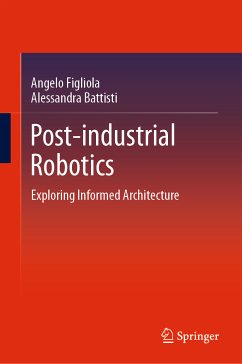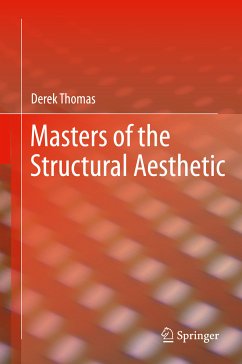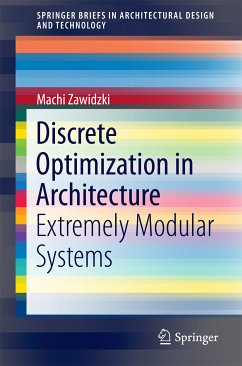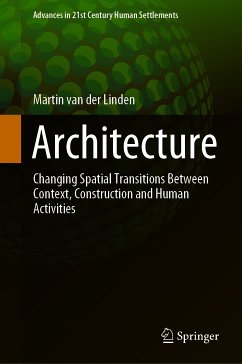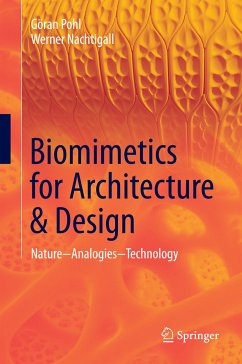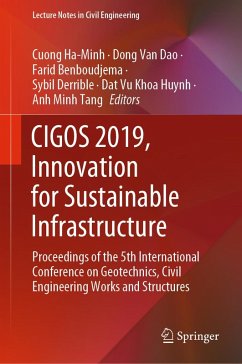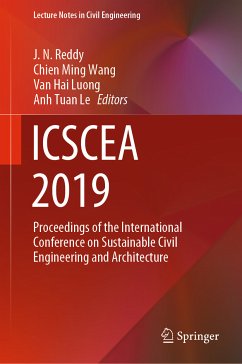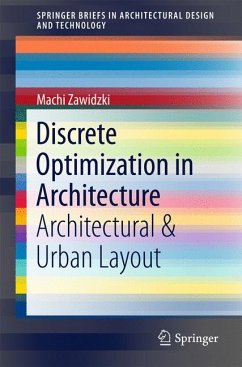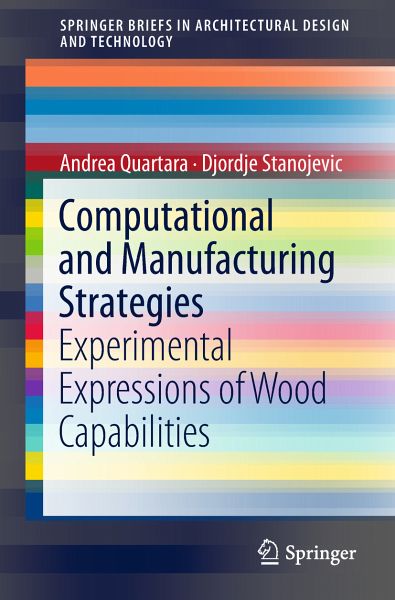
Computational and Manufacturing Strategies (eBook, PDF)
Experimental Expressions of Wood Capabilities
Versandkostenfrei!
Sofort per Download lieferbar
40,95 €
inkl. MwSt.
Weitere Ausgaben:

PAYBACK Punkte
20 °P sammeln!
This book highlights computationally enabled and digitally fabricated strategies used in the design of a series of full-size wooden structures. It introduces theoretical foundations and then focuses on the possibilities that have emerged as a result of the material-aware processes. The case studies expound wood as one of the most suitable materials to experience the seamless framework introduced with the digital design-to-construction chain. Two main aspects of the pavilions constructed, developed in various international academic groups, are considered. On one hand the case studies explore to...
This book highlights computationally enabled and digitally fabricated strategies used in the design of a series of full-size wooden structures. It introduces theoretical foundations and then focuses on the possibilities that have emerged as a result of the material-aware processes. The case studies expound wood as one of the most suitable materials to experience the seamless framework introduced with the digital design-to-construction chain. Two main aspects of the pavilions constructed, developed in various international academic groups, are considered. On one hand the case studies explore tolerances of raw and engineered material intertwined with machine processing; they also address material enhancement through strip applications in timber construction. In addition, the structures are examined in the light of an extensible designing path, which acts as an interoperable procedure, bridging the virtual and the real.
Dieser Download kann aus rechtlichen Gründen nur mit Rechnungsadresse in A, B, BG, CY, CZ, D, DK, EW, E, FIN, F, GR, HR, H, IRL, I, LT, L, LR, M, NL, PL, P, R, S, SLO, SK ausgeliefert werden.
Alle Preise in Euro und inkl. der gesetzl. MwSt. | Innerhalb Deutschlands liefern wir preisgebundene Bücher versandkostenfrei. Weitere Informationen: bitte hier klicken
Support
Bitte wähle dein Anliegen aus:
Rechnungen
Bestellstatus
Retourenschein
Storno



